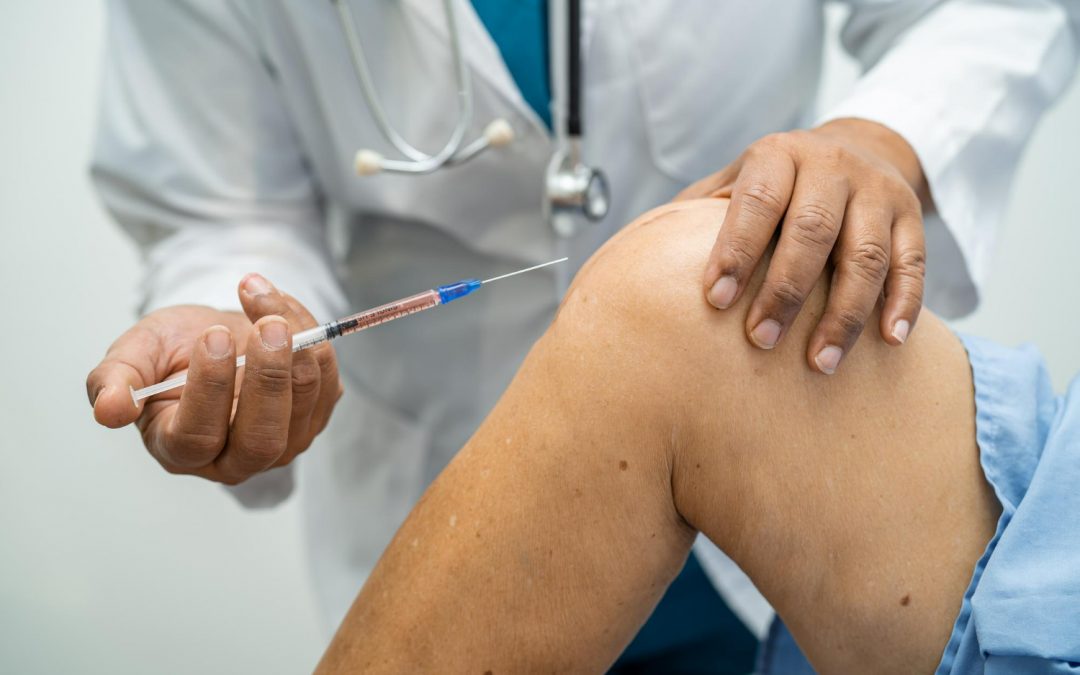Introduction
Regenerative medicine is transforming the landscape of healthcare, offering innovative solutions that harness the body’s natural healing processes. This cutting-edge field encompasses various techniques and technologies aimed at repairing, replacing, or regenerating damaged tissues and organs. At Stem Cell of NJ, we are dedicated to staying at the forefront of these advancements, providing our patients with the most effective regenerative treatments available. In this blog, we’ll explore the latest breakthroughs in regenerative medicine and how they can enhance your health and quality of life.
What is Regenerative Medicine?
Regenerative medicine focuses on repairing or replacing damaged cells, tissues, or organs to restore normal function. It includes a range of therapies, such as stem cell therapy, tissue engineering, and gene therapy. By leveraging the body’s innate ability to heal, regenerative medicine aims to treat a variety of conditions, from chronic pain and degenerative diseases to traumatic injuries.
Key Areas of Advancement in Regenerative Medicine
- Stem Cell Therapy
Stem cell therapy has emerged as one of the most promising areas in regenerative medicine. Stem cells possess unique properties that allow them to differentiate into various cell types and promote healing. Recent advancements in stem cell research have led to more effective methods of isolating, expanding, and deploying these cells for therapeutic purposes.
- Mesenchymal Stem Cells (MSCs): Derived from various tissues, including bone marrow and adipose (fat) tissue, MSCs are being studied for their potential to treat orthopedic injuries, joint disorders, and even cardiovascular diseases. Clinical trials are showing promising results, with many patients experiencing significant pain relief and improved mobility.
- Induced Pluripotent Stem Cells (iPSCs): These lab-generated stem cells can differentiate into almost any cell type. They hold immense potential for treating conditions such as Parkinson’s disease and spinal cord injuries. Researchers are actively investigating ways to utilize iPSCs for tissue regeneration and repair.
- Tissue Engineering
Tissue engineering combines principles from biology and engineering to create artificial tissues that can replace or support damaged biological structures. Recent advancements include the development of bioengineered organs and scaffolds that promote tissue regeneration.
- 3D Bioprinting: This innovative technique involves printing living cells in a layer-by-layer fashion to create three-dimensional tissue structures. Researchers are exploring its potential for producing complex organs, such as kidneys and hearts, which could address the shortage of organ donors.
- Decellularized Tissues: Scientists are also working with decellularized tissues—biological tissues that have had all their cells removed, leaving behind the extracellular matrix. These can be repopulated with a patient’s own cells, reducing the risk of rejection and improving healing outcomes.
- Gene Therapy
Gene therapy is another exciting frontier in regenerative medicine, involving the modification of genes to treat or prevent disease. This approach has gained traction in treating genetic disorders and enhancing the body’s ability to heal itself.
- CRISPR Technology: CRISPR-Cas9 has revolutionized gene editing, allowing for precise modifications to DNA. This technology is being explored for various applications, including correcting genetic mutations responsible for conditions like cystic fibrosis and muscular dystrophy.
- Adenoviral Vectors: These are used to deliver therapeutic genes into the body. Clinical trials are underway to assess their effectiveness in promoting regeneration in various tissues, including the heart and nervous system.
Applications of Regenerative Medicine
The advancements in regenerative medicine have opened new doors for treating a wide range of conditions:
- Orthopedic Injuries: Stem cell therapy and platelet-rich plasma (PRP) injections are being used to accelerate healing in sports injuries, joint pain, and cartilage damage.
- Cardiovascular Diseases: Regenerative techniques are being explored to repair damaged heart tissue following heart attacks, potentially improving recovery outcomes for patients.
- Neurological Disorders: Researchers are investigating the potential of stem cells and gene therapy to treat conditions such as multiple sclerosis, ALS, and traumatic brain injuries.
- Chronic Pain Management: Regenerative medicine offers new hope for patients suffering from chronic pain conditions, providing alternatives to traditional pain management strategies.
The Role of Stem Cell of NJ in Regenerative Medicine
At Stem Cell of NJ, we pride ourselves on being at the forefront of regenerative medicine. Our team of experts is committed to offering the latest and most effective treatments tailored to each patient’s unique needs. We utilize state-of-the-art technology and the latest research to provide you with optimal care.
Our services include:
- Comprehensive Evaluations: We begin with a thorough assessment to determine the best course of treatment for your specific condition.
- Personalized Treatment Plans: Based on your evaluation, we create individualized treatment plans that incorporate the latest advancements in regenerative medicine.
- Ongoing Support and Education: We believe in empowering our patients through education. We provide ongoing support to help you understand your treatment options and manage your recovery.
Conclusion
The field of regenerative medicine is rapidly evolving, offering exciting possibilities for healing and recovery. With advancements in stem cell therapy, tissue engineering, and gene therapy, we are entering a new era of medicine that prioritizes the body’s natural ability to heal itself. At Stem Cell of NJ, we are committed to providing our patients with the most innovative and effective regenerative treatments available. If you’re interested in exploring regenerative medicine options, contact us today to schedule a consultation and discover how we can help you achieve optimal health.
For more information about Stem Cell of New Jersey contact us today at 732- 264-2233 and schedule a consultation.
